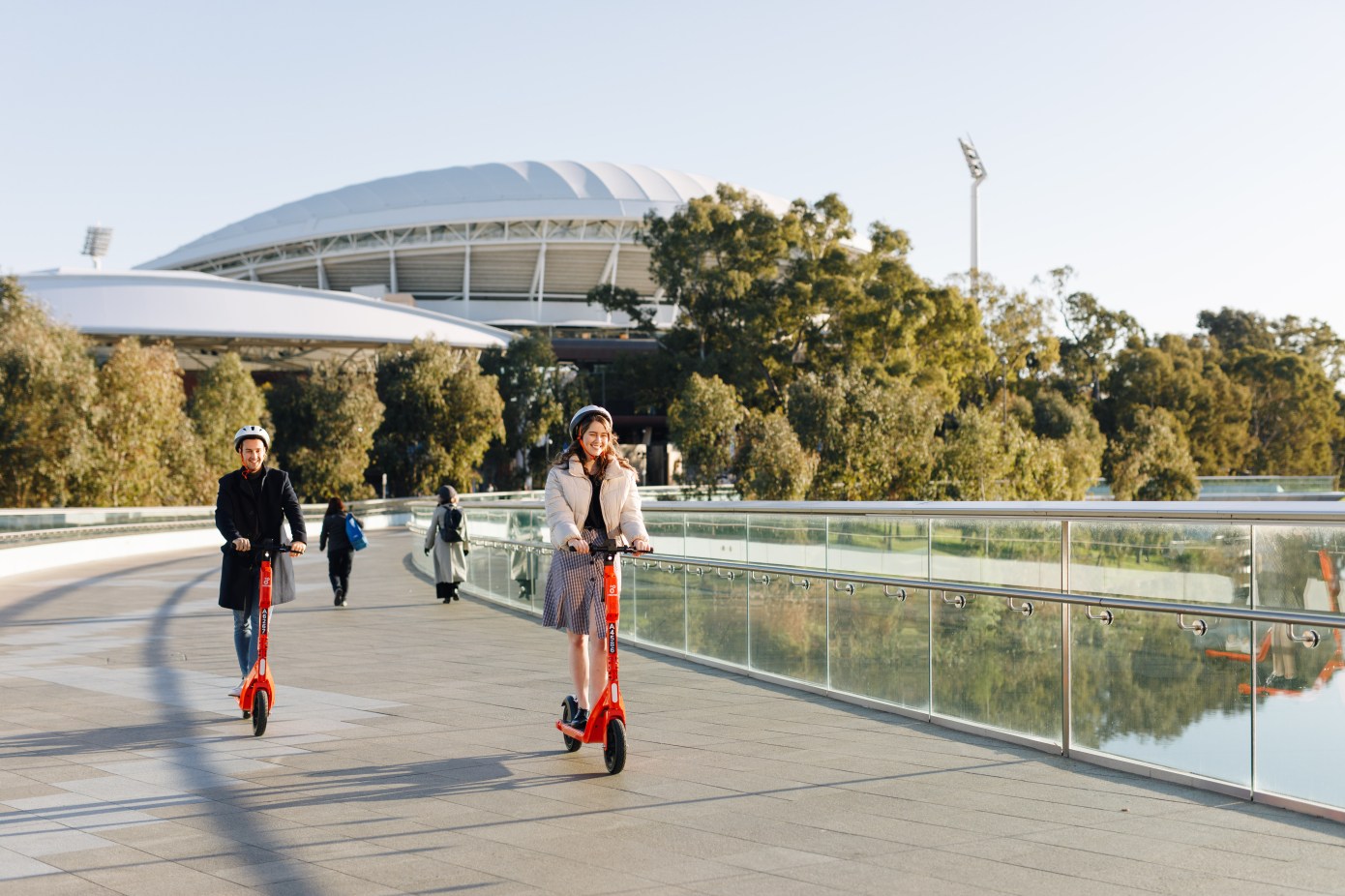E-scooter startup Neuron Mobility adds $12M to its Series A for expansion in Australia and New Zealand
Neuron Mobility, a Singapore-based e-scooter rental startup, announced today that it has added $12 million to its Series A. Led by Square Peg, an Australian venture capital firm and GSR Ventures, this increases the round’s new total to $30.5 million. The company, which operates in Australia and New Zealand in addition to Southeast Asian markets, first announced its Series A in December 2019.
Part of Neuron Mobility’s growth plans hinges on the increased adoption of electric scooters and bikes during the COVID-19 pandemic. Many people are using their cars less frequently because they are working remotely or there are movement restrictions where they live. When they do go out, electric bikes and scooters offer an alternative to public transportation and ride-hailing services for short trips.
Neuron Mobility’s chief executive Zachary Wang said the company raised a Series A+ instead of moving onto a Series B because more cities are “opening up to the possibility of micromobility, particularly rental e-scooters as they present an individual transport option that takes pressure off public transport and allows people to continue social distancing.”
“We’ve been experiencing tremendous growth in ANZ and the pandemic has made us fast track our plans,” he added.
Though Neuron Mobility currently does not operate in other Southeast Asian countries besides Singapore, Wang said it is “constantly evaluating opportunities across APAC.”
The new funding will be used to speed up Neuron Mobility’s expansion plans in Australia and New Zealand, where it claims to be the leading electric scooter rental operator. The company is currently present in nine locations, including Auckland, New Zealand, and Australian cities Adelaide, Brisbane, Darwin, Canberra and Townsville. Neuron Mobility plans to expand into five new cities over the next two months and part of that involves hiring 400 more people in Australia, New Zealand and Singapore. In addition to the Asia-Pacific, Neuron Mobility will also launch in Slough, it’s first location in the United Kingdom, by the end of this year.
Neuron Mobility’s research found that before the COVID-19 lockdowns in Australia, one in five of its users had never used an e-scooter before. But now Australian and New Zealand users have increased their average e-scooter trip distances by 23% to 2.6 kilometers, with the average duration of rides rising by 10% to more than 14 minutes. Neuron Mobility’s pricing is meant to be affordable depending on different markets. For example, in Brisbane, users pay one Australian dollar (about 68 U.S. cents) to begin a trip and then 38 Australian cents for each minute of the ride. Its e-scooters can go up to speeds of about 25 kilometers (15.5 miles) per hour.
Other “micromobility” companies, including Ofo, Reddy Go, Obike and Lime, have also offered rental services in Australia and New Zealand, but ran into trouble. Bike-sharing startups Ofo, Reddy Go and Obike withdrew from Australia in part because city councils were frustrated by bikes were being abandoned on sidewalks and in parks. Lime still operates in Australian cities, but in June, the Australian Competition and Consumer Commission found that the company failed to disclose safety issues with its Generation 2 scooters (in response, Lime said it would implement new compliance procedures and upgrade to its new Generation 3 scooter).
Wang said Neuron Mobility avoids those issues by strategically planning which cities it will launch in, instead of focusing on rapid expansion, partnering with city councils and “continually shifting and adapting to meet their needs.” Several of Neuron Mobility’s features, including geofencing to control where and how fast e-scooters can be ridden, and a “Helmet Lock” to make helmets available for all scooters, were developed after discussions with city councils. Neuron Mobility’s scooters, designed by the company specifically for renting, also use swappable batteries to decrease pollution.
After launching in Singapore, Neuron Mobility decided to focus on Australia and New Zealand because “both countries have cities that are highly suitable for micromobility in terms of infrastructure and regulations,” Wang said. City councils have also “been keen to push the boundaries of what can be done with technology to make programs better and safer and that really suits our way of thinking.”
Source: TechCrunch
